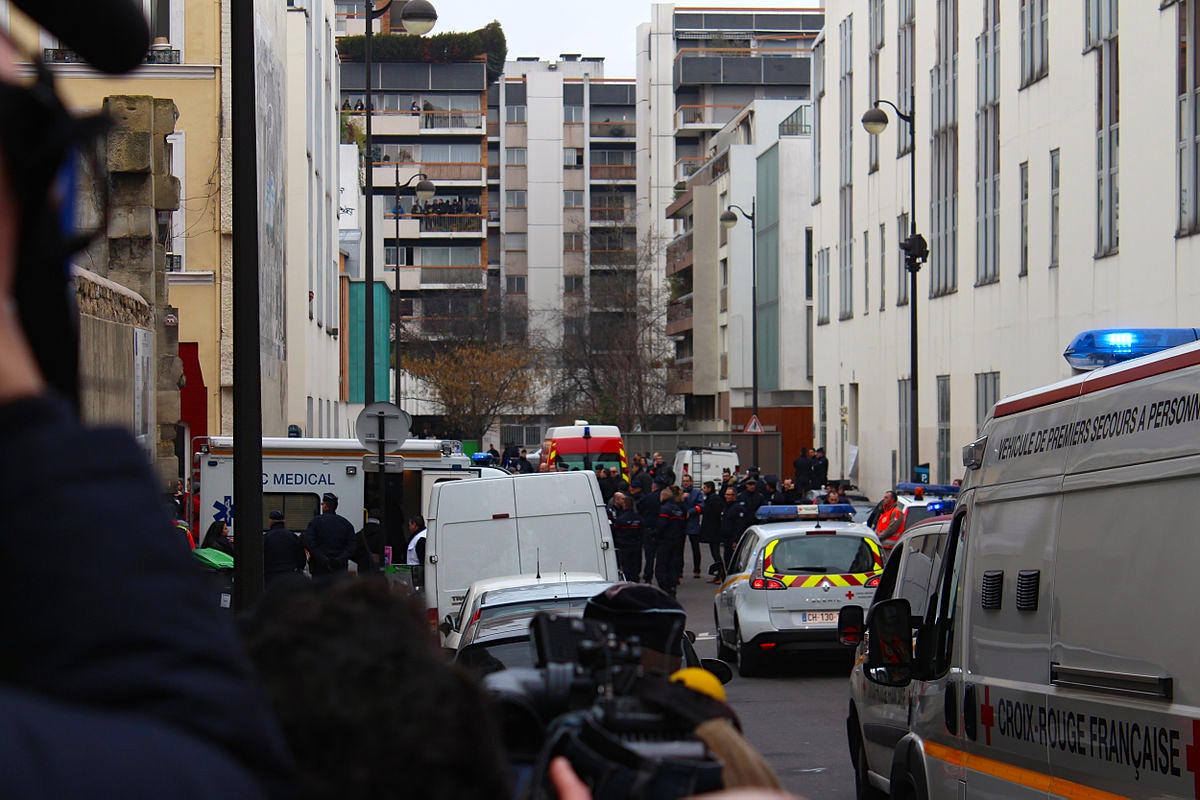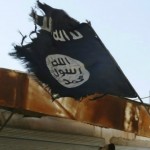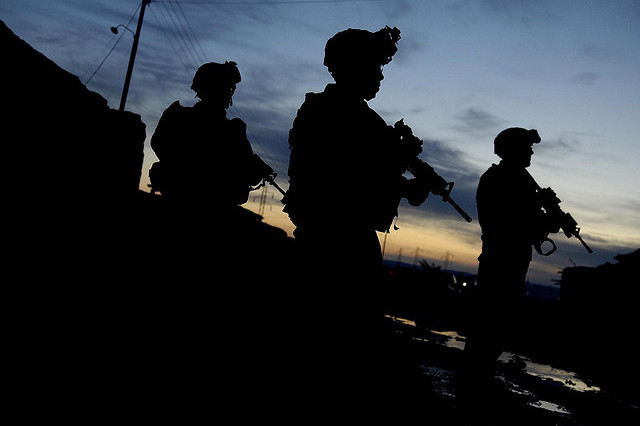by John Feffer
The recent attack on the French satirical magazine Charlie Hebdo, which left a dozen editors and cartoonists dead, has renewed concerns that blowback from the latest round of fighting in Syria and Iraq is finally reaching Europe.
In a September 2014 video, the Islamic State (ISIS or IS) called on its militants and sympathizers around the world to kill “disbelievers” in the United States and France in response to air strikes against the radical group. European governments have also feared the return of Europeans radicalized by the war in Syria to fight as “lone wolves” in their countries of origin. A major terrorist attack mounted by such returnees is “pre-programmed,” a top EU official said in September.
“It was culpably naïve to imagine that sparks from the Iraq-Syrian civil war, now in its fourth year, would not spread explosive violence to Western Europe,” warned Patrick Cockburn in The Independent after the Hebdo attack. “With thousands of young Sunni Muslims making the difficult journey to Syria and Iraq to fight for Isis, it has always been probable that some of them would choose to give a demonstration of their religious faith by attacking targets they deem anti-Islamic closer to home.”
Several violent actions have already taken place. In May, French citizen Mehdi Nemmouche, who had fought in Syria with IS, claimed responsibility for an attack on a Jewish museum in Brussels that left four dead. In December, an IS sympathizer took hostages at a café in Sydney before he and two customers died in a shootout with police.

Cherif and his brother Said Kouachi are prime suspects in Wednesday’s deadly attack on the staff of satirical Paris-based magazine, Charlie Hebdo.
At first glance, the Charlie Hebdo killings seem to fit this pattern. One of the two brothers suspected in the shootings, Cherif Kouachi, tried to leave France in 2005 to fight in Iraq and then stood accused of helping others make the same journey. The assailants carried out the killings this week with what observers have called “military precision.” Several press outlets have suggested that one or both brothers had been to Syria. Other outlets report that the older brother, Said Kouachi, traveled to Yemen in 2011 for training with al-Qaeda in the Arabian Peninsula.
This narrative elevates what might otherwise be a solitary act of terrorism—like the assassination of Theo van Gogh in Amsterdam in 2004 or the massacres in 2011 in Norway by Anders Breivik—into the latest skirmish in a larger war. Such a narrative serves the purposes of IS and al-Qaeda, which both seek a global battlefield to raise their status and boost recruitment. But it also meets the needs of those in the West who seek a rationale for the build-up of the national security state or who want to promote a civilizational conflict against Islam more generally.
Even if the killings can be linked to the ongoing conflict in Syria and Iraq, they would only constitute the second such tragedy to fall into that category, after the Brussels murders last May. Other incidents have been mentioned in the same breath, such as Mohammad Merah’s killing spree in Toulouse and Montauben in 2012. But Merah, reportedly motivated by anti-Semitism and the war in Afghanistan, had not himself fought in the Middle East. The police have also reportedly foiled about a dozen terrorist plots involving returnees from the Syrian conflict.
The far right has already used the Charlie Hebdo killings to bolster their larger Islamophobic agenda. Nigel Farage of the UK Independence Party linked the attacks to a “fifth column” living in the West. French politician Marine Le Pen claimed that only her National Front party was equipped to take on the challenge of “Islamic fundamentalism on our territory.” In the Wall Street Journal, the outspoken Ayaan Hirsi Ali urged the non-Muslim world to stop appeasing radical jihadists, political Islamists, and Muslims more generally (the three categories frequently elide in her analysis).
These tirades miss the point. Muslim organizations, from the Union of Islamic Organizations of France to the Council On American-Islamic Relations, have been vehement in their denunciations. The governments of Iran and Saudi Arabia condemned the attacks. Even the European Muslim organization with strong ties to the Muslim Brotherhood declared the killings a “vile terrorist act,” and Hezbollah leader Sheikh Hassan Nasrallah announced that extremists do more harm to Islam than the cartoons. The Charlie Hebdo assault, in other words, has been an opportunity for Muslim and non-Muslim alike to unite against and further marginalize IS, al-Qaeda, and their followers.
The tragedy should also prompt a rethink of the way Europe is addressing the potential of blowback from the ongoing conflicts in the Middle East. For instance, most governments have adopted an increasingly hardline approach to returnees. Approximately 3,000 Europeans have gone to fight in Syria, but only a few hundred have returned so far (approximately 120 of the 700 French fighters, for instance, and 40 out of 110 Sweden). Most European countries are jailing these former fighters if they betray any links to radical factions in the Middle East.
But jails are the worst place to send these fighters. Those not yet radicalized can come under the sway of persuasive proselytizers. The already convinced, meanwhile, treat prison as a meet-up group to plan future ventures and collaboration.
Denmark, however, has adopted a different approach. It is offering counseling and assistance for returnees to reintegrate into mainstream society. The program is based on the methods used to deal with neo-Nazis, a threat that has largely faded in Denmark. “What we are doing seems to be working,” according to the chief of police in Aarhus, where a number of Syrian fighters have returned.
It is critically important to separate the average fighter, who might have gone to fight in the Middle East for any number of reasons, from hard-core al-Qaeda and IS adherents. Such triage frees up resources for law enforcement to focus on people like Cherif and Said Kouachi.
So far, the number of returnees is manageable on a country-by-country basis. But the longer the conflict continues—and the more resources Europe puts into the fight against the Syrian government of Bashar al-Assad—the larger the potential pool of returnees. Detaining people for going off to fight against Assad while at the same time investing resources into rebels engaged in combatting the same enemy makes little sense. European countries should deal with the threat of blowback by trying to reduce the root cause of the problem through diplomatic efforts to end the war or through deescalating the conflict itself.
The Charlie Hebdo killings, whatever their connections to the current wars in the Middle East, were acts of terrorism that should be handled by law enforcement. Blowback from these wars has so far been minimal in Europe. By resisting narratives of civilizational conflict and pushing for a ceasefire in the Syrian war, European governments can do even more to reduce the threat of this blowback.
Photo: Journalists, policemen, and emergency services in the street a few hours after the deadly Jan. 7 attack on the staff of the satirical paris-based magazine, Charlie Hebdo. Credit: Thierry Caro/CC License






I can see merit in the Danish approach, but I don:t know how you could sell that to a country that is still living in the 19th century in its use of capital punishment.
Keep separating the islamists ,in categories of moderation and you will end up dead…
we all will…
In order to have some mercenaries doing the dirty work ,of regime change against Assad….
as if there is even 1 person in Europe who cares about Assad,and about changing him for some other dictator ,imposed by the west.( if indeed we accept he was a dictator something i am contesting with all my power,as i know syrian people had a very good life before the western hypocrites started trying to steal the country’s resources and take it over for their own strategic planning.
I say withdraw your plans for explaining to the barbarians how to make democracy.
Without historical evolution ,without renaissance there can not be any civilised society,there can not be democracy ,humanism or anything from the values we today in our world hold dear.(i do ,and i hope most of you too ,if you dont maybe you dont deserve to be on earth) .
The west was lucky to have the french back then ….
Plus there is the small issue with this idea of a nation called muslim nation as if itit is reality!!
there is no such thing.
arabs are not all one
muslims are not all arabs.
and finally we (the non arab non muslim non religious )are not all idiots.Some of uys can think..
So again,if you want peace in europe ,try stopping to want to topple Assad to start with and help him restore the order in Syria ,the order that you helped the islamists destroy.With the poor excuse of spreading democracy to arabs!!
We want our way of life protected and we wiull protect ourselves from these mercenaries the western secret services trained for years before sending them to fight proxy wars.
Maybe we should send there all these governing europe all these years ,for cooperating with the islamists ,in reality.
I fear that your mental processes may be as confused as your spelling……..!
“After 9/11, the United States launched a military effort vaguely intended to pacify or democratize or otherwise “fix” the Greater Middle East, thereby supposedly reducing the Islamist threat emanating from that quarter. Based on the outcomes achieved in Iraq and Afghanistan [also Pakistan and Syria] that military effort must rate as an utter failure. Indeed, if anything, wars waged in the Islamic world only serve to exacerbate the sense of angry alienation felt by at least some Muslims residing in the West. War is making matters worse.”
— Andrew J. Bacevich
So France is now sending an aircraft carrier to the Gulf. Stupid.
Thank you, U.S. government, for making it dangerous for me to travel.
Worldwide Caution
Last Updated: January 9, 2015
The Department of State is updating the Worldwide Caution to provide information on the continuing threat of terrorist actions and violence against U.S. citizens and interests throughout the world. Recent terrorist attacks, whether by those affiliated with terrorist entities, copycats, or individual perpetrators, serve as a reminder that U.S. citizens need to maintain a high level of vigilance and take appropriate steps to increase their security awareness. This replaces the Worldwide Caution dated October 10, 2014.